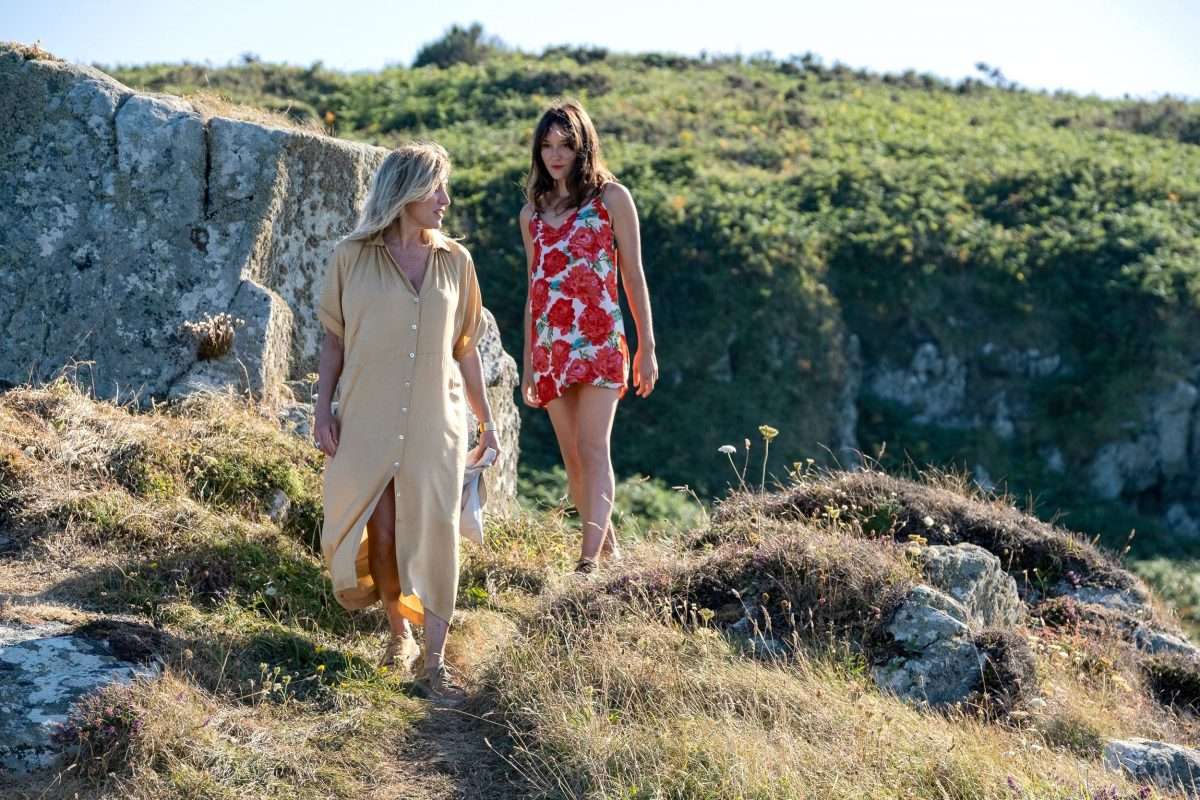
Last year Joachim Trier’s The Worst Person In The World rocked movies.
Although the third film in Trier’s thematic Oslo trilogy lost out to Drive My Car for Best Foreign Film at the 2021 Oscars, the impact had already been made. A star had been cast into industry limelight in the form of uber charismatic Renate Reinsve, the internet had adopted it as a modern classic, and to date it has inspired almost 300,000 logs and over 70,000 reviews on letterboxd by those who likely found kinship in Reinsve’s protagonist Julie’s well-meaning messiness and existential aimlessness, finding her way through life and love like mice wander mazes.
Two days after The Worst Person In The World made its acclaimed debut at Cannes, Charline Bourgeois-Tacquet’s Anaïs In Love held its own premiere at the film festival, far from the buzz of the in-competition. A quieter affair as a part of Cannes’ international critics week (a section of the festival that heralds up-and-coming filmmakers with only one or two films to their names), Anaïs In Love came and went, but, since its official UK release this month, has been touted as somewhat of a spiritual sibling to Worst Person.
Anaïs In Love opens with a bright-eyed brunette in a rose-red summer dress skipping carelessly, bouquet in hand, through a Parisian flower market. Like Worst Person’s Julie – and many in their 20s, still young and inexperienced enough to have not found their certain definition of love – Anaïs (played by real-life Anaïs Demoustier) is in spiritual free-fall, at once lost and liberated. A student putting off writing the second half of her overdue thesis, Anaïs is more concerned with untangling her eccentric love life: her boyfriend Raoul is on paper the perfect man – boyish good looks, smart, funny, committed – but she remains unmoved by him emotionally; her love affair with an older married man, Daniel, also floats in passionless limbo. In complete control of her agency, Anaïs bulldozes through the men in her life without ever sacrificing an iota of agency. It’s not until she meets Daniel’s wife, a thoughtful older writer, Emile, at a symposium in Kerdeul that she falls head over heels, and proceeds to do all she can to seduce her.
Short and sweet (frankly the most rapid 98 minutes you’ll experience in the cinema this year), Anaïs In Love proves itself a stunning, intellectually driven and remarkably polished debut from Bourgeois-Tacquet. Taking place largely in a small town overlooking the French countryside, the film encapsulates all the sun-kissed breeziness of a classic Rohmer flick, or, more recently, Mia Hansen-Love’s gentle rumination on creativity, Bergman Island.
Charline equates nature with her perception of what love should feel like; The exchanges between Anaïs and Daniel mostly take place between rooms, in tight hallways and elevators, or busy kitchens crowded with staff. Her conversations with Emile, on the other hand, enjoy secluded beaches and airy open-fields. When they do happen to be forced into enclosed spaces, it’s not uncomfortable, but intimate. It helps that Valeria Bruni Tedeschi and Anaïs Demoustier have enough sexual chemistry to start a forest fire – cliche lines of dialogue that might land with a thud and a cringe in a lesser romance here bleed sincerity. Ideas and tropes that have been recycled over and over feel totally refreshing. In many ways it feels like a classic love story, wrapped and gifted as brand new.
For all the hot-blooded romance, there’s an equal amount of farce. Denis Podalydes gives the year’s most subtly hilarious performance with wide-eyes and dropped-jaws alone as Daniel, a true screen weasel, utterly confounded by Anaïs’ unashamed case of main-character syndrome. My young mistress can’t really be seducing my wife, can she?? Anaïs in turn spars him with perfect comic timing of her own, leaving him flummoxed at every turn. Unknowingly at the centre of the war-zone is Emile, played by Valeria Bruni Tedeschi with introspection, maturity, and intoxicating sensuality.
In Anaïs we find an archetype that doesn’t get to shine on-screen very often: a female protagonist – in her own words – with no principles. Though undeniably charming, she’s selfish, demanding, aloof, sometimes unlikably so. Renate’s Julie navigates life with less indifference, but her actions nevertheless stem from a relatable selfish core. While not absent from the ether (Spike’s She’s Gotta Have It comes to mind), it feels only right to see our female protagonists revelling in their messiness and moral grey areas in ways that still paint them as real characters. Incarnations of the “chaotic femme”, as coined by The Guardian’s Wendy Ide.
The film closes with a conversation on the responsibility of desire and emotional ethics of hedonism. Do we seize moments of passion even with the realisation that they’re doomed not to last? Do we consider the emotional fallout – of the people we might hurt, that we might hurt ourselves? Is the potential heartbreak and shattering of illusions worth wrapping ourselves in a single second of unchained vulnerability? Anaïs In Love argues that perhaps such moments of raw emotional and physical honesty shouldn’t be feared for their fleetingness, but instead embraced for it.





